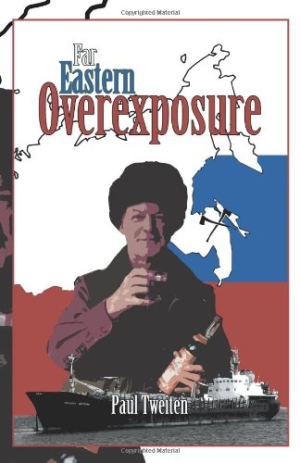Far Eastern Overexposure
Paul Tweiten, a forest management professional, wrote Far Eastern Overexposure to highlight the many challenges he faced in his first year overseeing a logging operation in the Russian Far East during the mid-1990s. Written in an easygoing style and a conversational tone, Far Eastern Overexposure tells a somewhat singular tale of the hard-drinking and almost primitive subculture of rural Russian logging camps.
The 175-page book is well written, with few typographical or grammatical errors. There are several photos that serve to enhance the text, and Tweiten does an excellent job of describing the many characters that populate the multinational corporation he works for and the logging camp where he spends most of his time. Tweiten begins his diary-like memoir by providing a play-by-play account of his arduous yet entertaining journey from Ironwood, Michigan, to Siziman Bay in Russia.
Though initially enjoyable, Tweiten’s attention to often mundane details soon becomes an irritant. What could be a culturally important travel memoir gets bogged down with an overabundance of facts. From tedious specifics about timber lengths and logging equipment repairs to the detailed itinerary of his travel by plane, train, and truck, Tweiten shares too much.
To Tweiten’s credit, there are numerous times in the book where one can’t get enough of the everyday goings on at Siziman Bay. His anecdotes—about the continuous alcohol consumption by both the Russians and the multinationals, menu offerings that range from dog to liquefied mashed potatoes, and toileting behaviors and their related conversations—are often poignant and funny.
Unfortunately, many readers will likely be outraged by the objectification of the few female characters in the book. The sexual content is crude and adolescent, the profanity fit for a locker room, and the almost universal male chauvinism long outdated. Fortunately, Tweiten redeems himself by handling a shocking rape scene with integrity and compassion.
Tweiten’s memoir is a telling account of a unique subculture living and working in rural post-Soviet Russia, and those with an interest in timber management and the inner workings of a remote logging camp will relish the author’s attention to detail.
Reviewed by
Patty Sutherland
Disclosure: This article is not an endorsement, but a review. The publisher of this book provided free copies of the book and paid a small fee to have their book reviewed by a professional reviewer. Foreword Reviews and Clarion Reviews make no guarantee that the publisher will receive a positive review. Foreword Magazine, Inc. is disclosing this in accordance with the Federal Trade Commission’s 16 CFR, Part 255.

